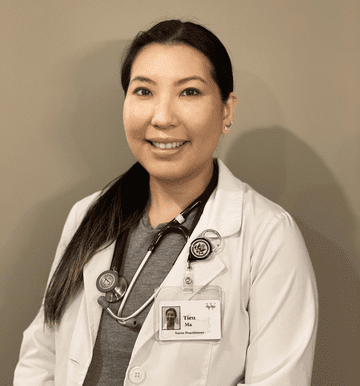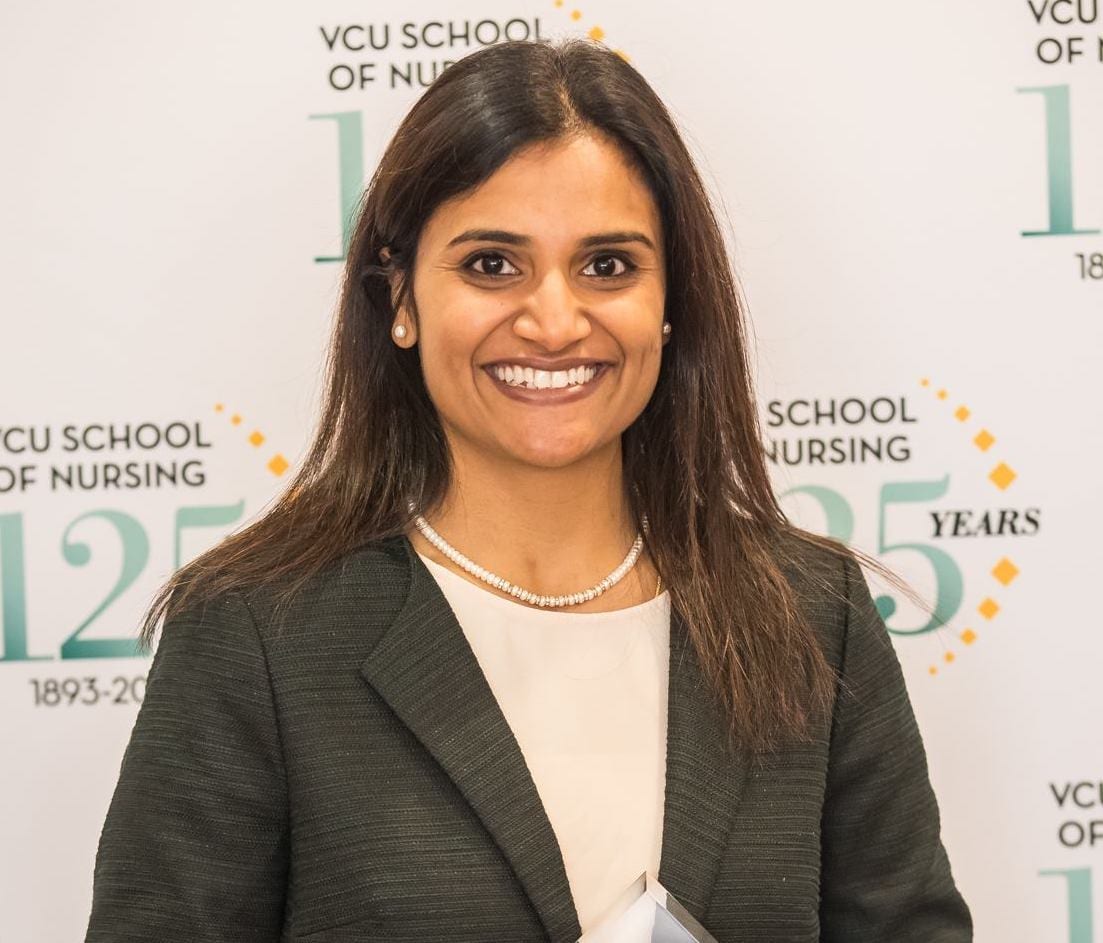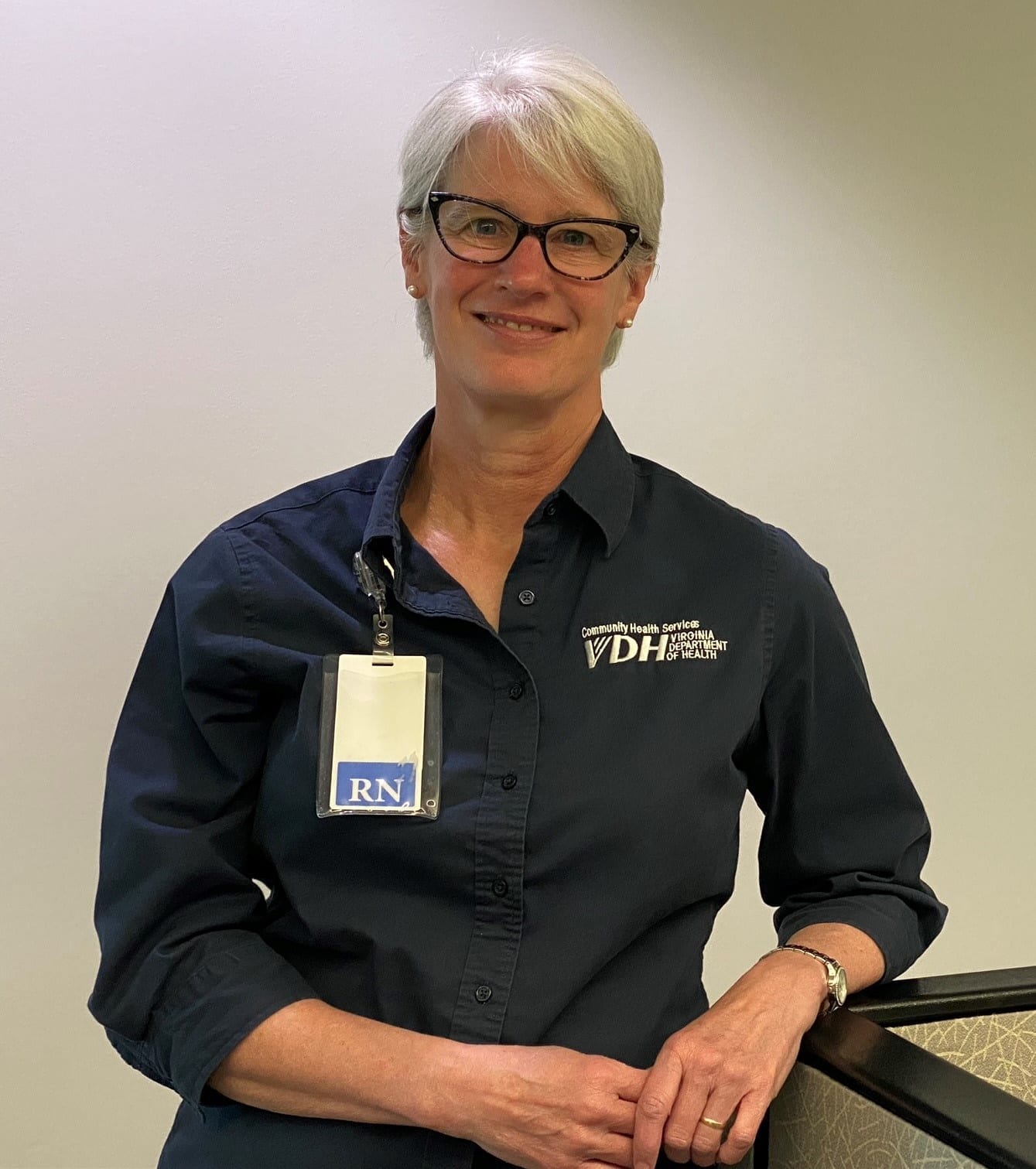Celebrating alumni nurses during National Nurses Month
During National Nurses Month this May, VCU Alumni extends a special thanks to our alumni nurses, as they continue to provide the highest level of quality care to their patients during the COVID-19 pandemic. The American Nurses Association first declared May 6-12 as National Nurses Week in 1993 “to recognize the vast contributions and positive impact of America’s 4 million registered nurses,” and expanded it to a monthlong recognition event in 2020 that continues this year. Here, we highlight five VCU alumni nurses who deserve special recognition for their efforts to excel, to lead, to innovate — and to make a difference — every day.

Tamara Broadnax, DNP, RN, NEA-BC, VHA – CM (M.S.’07/N; DNP’18/N)
Utilization management consultant, Clinical Command Center, Department of the Chief of Staff, Central Virginia VA Health Care System
What inspired you to be a nurse?
I’m a second-career nurse. I graduated from West Point in 1989, and I am a proud Army veteran. My initial degree is in human factors engineering, and I served as a logistics officer. After leaving the service, I worked as a process engineer and found that I liked working with people more than machines. I wanted to make a personal impact, and nursing was the perfect way to apply my systems training to make a meaningful difference for my patients.
What is your job and where do you work?
I work in the Clinical Command Center for the Department of Veterans Affairs here in Richmond [Virginia]. I’m part of an interdisciplinary team that coordinates key operational services to optimize patient flow throughout the health care system. We apply a data-driven approach to systemwide facility flow and provide continuous improvements to deliver efficient and optimal patient care. This helps to ensure safe, high-quality and patient-centered care for every patient for the duration of their stay from admission to the hospital through discharge.
What have been the challenges of working as a nurse during COVID-19?
COVID-19 challenged us to have a stronger reliance on providing services remotely. We also had to change best practices within the health system based on guidance from the CDC. We implemented changes rapidly, and we are constantly changing to keep our patients and staff safe.
How has your education at VCU prepared you to work in a global pandemic?
Having recently completed my doctorate with a focus on quality improvement and patient safety prepared me to apply my organizational skills in the workplace. I am able to help my team make the needed changes across the system.
What advice would you give to those aspiring to go into nursing?
Nursing is such a diversified field. I would tell aspiring nurses to tap into areas that align with the things that they are passionate about and to prepare themselves for constant change as we continue to learn new ways to improve patient care.
Is there a story you can share of your proudest moment of the past year?
The proudest moment was when our health system created a brand-new, state-of the art unit to take care of our COVID patients. I was really proud of the nurses who stepped up and learned new skills to staff the unit. This dedicated unit has been a very effective way to provide the best care to our COVID patients, while reducing the risk of virus exposure for other patients.
What do you enjoy most about being a nurse?
Being able to make a difference for my patients every day.

Shawn Floyd, DNP, RN, ACNP-BC (B.S.’01/N)
Lung transplant nurse practitioner, UVA Health, Charlottesville Virginia
What inspired you to be a nurse?
I have an aunt who has been a registered nurse for over 40 years. When I was a teenager, she said that nursing needed more men. Then she asked, “Do you like science, do you like the idea of working three days a week?” I was like, sign me up. I took a nursing assistant training course in high school because of this, and I knew this was going to be the coolest job in the world.
What have been the challenges of working as a nurse during COVID-19?
I feel the biggest challenges have been not knowing what is coming next. We have had to change the way we work, where we work, and how we work to accommodate the science that has come out almost on a daily basis. I went from seeing patients in the clinic multiple days a week to not seeing any in-person visits, then telehealth, and now we are back to in-person visits again. It has also changed the paradigm of working from home. I have always been able to do some of my day-to-day work from home, but this just showed that about 70% of the work I can do without leaving my home. The other 30% is actually having personal contact with my patients.
How has your education at VCU prepared you to work in a global pandemic?
I originally graduated from a diploma program in 1998 then attended VCU’s distance weekend program in Newport News, Virginia. This option allowed me to work while going to school. This also made me see that the traditional idea of going to a class two to three days a week was not the only way to get your degree done. This has translated well into what we are doing with all the guidelines and safety protocols we have put in place. I have been able to adapt to the ever-evolving landscape that we see day to day.
What advice would you give to those aspiring to go into nursing?
This job is not for a person who does not want to be challenged day to day. If you want to do the same thing over and over every day, nursing is not for you. In my 20-plus years as a nurse, I can say every day, every patient situation, and everything I do changes me and helps me evolve. I have seen some pretty smart people go to nursing school and ace the didactics, but when it comes to clinical work that is where you’re going to learn the most. I was never a straight A student, but with the work I put in I went from a diploma in nursing to a doctorate, If I can anyone can.
Is there a story you can share of your proudest moment of the past year?
This year has been such a blur. I guess the proudest moment is seeing the transplant teams persevere all over the country. In March of 2020, we were not sure if this was going to be a program killer because of the fear of the unknown and how overrun the health care system might have been. Even with everything that was going on, the transplant teams in the U.S. continued to press on looking at every donor and every person that was referred to us with a new lens. Here at UVA Health, we did a bilateral lung transplant on our first patient whose lungs were destroyed by COVID in October. This was a disease that we had never seen in a patient, that we knew little about. Once he was done with surgery then getting ready for discharge, we all just held our breath because this was new territory for us, but when he came and walked into the clinic that first time it was like affirmation of why we do this.
What do you enjoy most about being a nurse?
It is the relationship I have built over my career. I have people whoI have worked with in the past that I have not spoken to or even seen these days in months to years. I know that when I need help with an issue, who I can reach out to for that help and usually it is like no time has passed at all. It is a great feeling to know that you have built a collegially relationship with someone who knows what you’re doing matters and they want to help you succeed.

Tien Ma, NP (B.S.’10/H&S; B.S.’12/N)
Nurse practitioner, Nguyen Medical Practice, Annandale, Virginia
What inspired you to be a nurse?
I’ve always been interested in the health care field. I chose nursing specifically because it was a fast-growing field that also allowed me to do what I love, teaching and educating others.
What have been the challenges of working as a nurse during COVID-19?
One of the main challenges our office faced was transitioning in-office visits to virtual visits. We have a lot of older patients who are not tech savvy so maintaining continuity of care was difficult initially. Another challenge is you can’t perform a physical exam to fully assess the patient.
How has your education at VCU prepared you to work in a global pandemic?
The VCU nursing program taught me a lot about infection control. I was able to apply that knowledge in educating my patients to prevent further spread of COVID19.
What advice would you give to those aspiring to go into nursing?
After working in several different environments, such as the hospital, free clinic and long-term care/nursing home, I realized my personality and working style is best suited in a private office setting. I encourage new nurses to branch out and explore their interests. Your career options aren’t restricted to the hospital setting.
Is there a story you can share of your proudest moment of the past year?
There was a patient I saw who had very concerning complaints. She was very reluctant to go to the hospital, but after much convincing, she finally decided to go. It turns out she actually had a stroke but was able to get to the hospital in time to receive proper treatment. I have no doubt I was able to convince her to go to the hospital because she trusted my nursing expertise and believed I was her advocate.
What do you enjoy most about being a nurse?
I enjoy building relationships that I have with my patients. There are patients I see every few months and some on a yearly basis. Each of them exudes trust and confidence in my abilities and expertise. The rapport I establish with them and knowing I made a positive impact on their health is one of the personal and professional satisfactions of being a nurse.

Lathika Mohanraj, Ph.D., RN, BMTCN (Ph.D.’08/M; B.S.’14/N)
Assistant professor, Department of Adult Health and Nursing Systems, VCU School of Nursing; clinical nurse, Cellular Immunotherapies and Transplant Unit, VCU Massey Cancer Center
What inspired you to be a nurse?
I have a long-standing passion for understanding cancer mechanisms at the molecular level. My drive to conduct oncology research led me to apply to VCU for a Ph.D. program in molecular biology and genetics in 2005. Following the doctoral program and a postdoctoral fellowship in pathology, I realized the importance of involving patients, conducting clinical and translational studies in addition to basic science research. This transition introduced me to the fascinating, versatile and fulfilling world of nursing. I decided to go back to school to earn a bachelor’s degree from the VCU School of Nursing.
What is your job and where do you work?
After graduating from the VCU School of Nursing in 2014, I started working at the Cellular Immunotherapies and Transplant Unit (then called Bone Marrow Transplant Unit) at VCU Massey Cancer Center, and still continue to work there. The CIT program consists of an interdisciplinary team consisting of fellow nurses, physician colleagues, transplant coordinators, pharmacists, social workers and various members who have provided a rich learning experience for me and a collaborative environment to establish myself as a nurse scientist.
In 2017, I joined the VCU School of Nursing as a full-time tenure track faculty to establish and strengthen my career as a nurse scientist. My passion lies in studying both clinical factors and molecular biomarkers that impact transplant outcomes, and consequently survivorship in patients receiving stem cell transplants.
What have been the challenges of working as a nurse during COVID-19?
As a researcher, educator and a nurse, the COVID-19 pandemic has impacted our workflow, program of research and patient interactions in various ways. However, the flexibility, transparency, understanding and support provided by the School of Nursing has made it possible to adapt and continue our work in modes that are efficient and appropriate for us as faculty taking into account work-life balance. It has been fascinating to see our nursing students adapt in these constantly changing environments. As a researcher, I have been able to initiate studies that help understand the experiences of bone marrow transplant patients during this pandemic.
How has your education at VCU prepared you to work in a global pandemic?
VCU has played a significant and critical role in my career as a nurse scientist. Not only has it provided the necessary education but also provided experiences, connections, collaborations, mentors and friends. My 15 years here at VCU as an international graduate student, postdoctoral fellow and a faculty member has significantly contributed to the person I am today, ready to face and overcome challenges, in difficult times such as a global pandemic.
What advice would you give to those aspiring to go into nursing?
Nursing is a versatile profession with multiple avenues for individuals with varied strengths and skills. One can be a nurse in settings such as the hospital or the community and provide care to different individuals across the life span. There are opportunities to advance one’s career to be advanced care practitioners, educators or doctorally prepared researchers and scholars. Opportunities in the field of policy and informatics continue to grow.
What do you enjoy most about being a nurse?
My most fulfilling experience about being a nurse is my relationship with my patients and their caregivers. Bone marrow transplant patients tend to stay longer in the hospital due to the nature of the treatment process and this gives nurses an opportunity to know them and build relationships that are long lasting and rewarding.

Jeannine Uzel, RN, BSN, MSN (B.S.’86/N)
Director of public health nursing, Virginia Department of Health
What inspired you to be a nurse?
I come from a long line of nurses, including my mother. I have a tender heart and wanted to serve people, and here I am! As the director of public health nursing for the Virginia Department of Health, I am the lead for 35 health districts throughout the state and two independent health districts. We have over 550 public health nurses in the commonwealth at the Virginia Department of Health.
What have been the challenges of working as a nurse during COVID-19?
Our public health nurses have been working seven days a week since March of 2020. We have been involved in isolation and quarantine, testing operations, outbreak control, mass testing events, keeping up with routine public health programs and leading and shouldering the largest vaccination campaign of our lifetime. We have continued our work amidst challenging political climates and have always sought to assure the safety and well being of every citizen of the commonwealth.
How has your education at VCU prepared you to work in a global pandemic?
VCU emphasized leadership and evidenced-based practice. Particularly during this pandemic, our public health nurses have had to step into leadership positions and communicate to the public explaining evidence-based practices that were not popular, including isolation and quarantine. We have been challenged by the vaccine-hesitant with our vaccine roll out. Again, conveying evidence-based, solid scientific information has been key to gaining the public trust.
What advice would you give to those aspiring to go into nursing?
There are so many different ways to practice nursing! The flexibility is amazing. You have to have a passion for people to stay in this profession. You will find your niche, even if your first job doesn’t reflect that.
Is there a story you can share of your proudest moment of the past year?
We were short vaccinators when the Richmond International Raceway vaccination site opened so I volunteered, along with our medical director, Dr. Adekoya, to serve as vaccinators. Public health nurses from three health districts, along with Medical Reserve Corps volunteers, and school nurses, came together to provide 3,000 vaccines to our most vulnerable seniors. And, these efforts are continuing throughout the commonwealth. We are making a difference one vaccine at a time!
What do you enjoy most about being a nurse?
Although my position currently is mostly administrative, I love helping with vaccination events and meeting people one on one. I have heard amazing stories of our seniors who are grateful to be fully vaccinated and look forward to seeing grandchildren they have never seen in person and feeling comfortable to once again meet in small family groups. I love pushing back vaccine preventable diseases, encouraging wellness in people, and giving them a sense of control over their health and the health of their community.